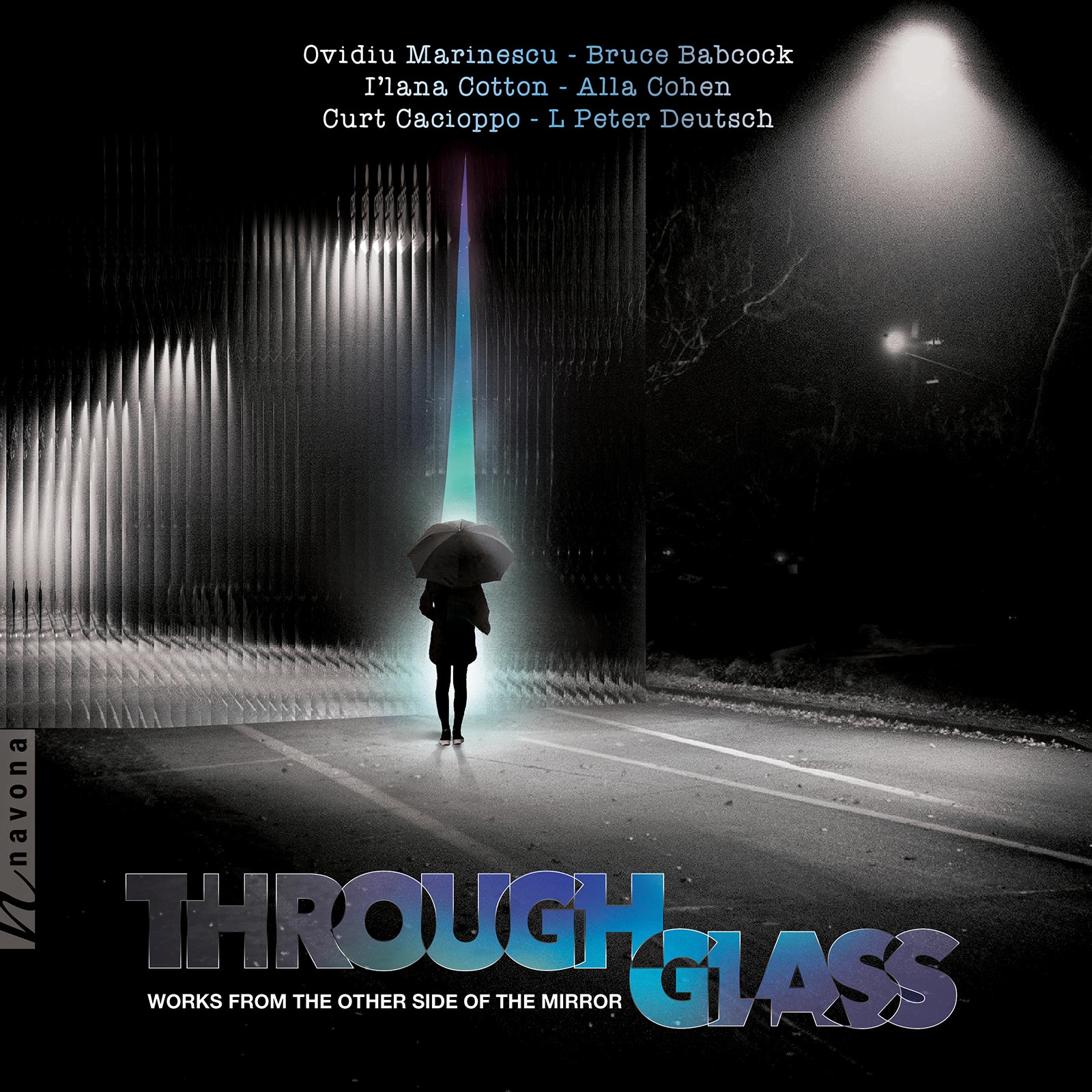
Share Album:
Through Glass
Ovidiu Marinescu composer
Bruce Babcock composer
I’lana Cotton composer
Alla Elana Cohen composer
Curt Cacioppo composer
L Peter Deutsch composer
Navona Records presents some of the finest American voices of modern serious music on THROUGH GLASS, a brand-new compilation of recently-created works for piano – both solo and in chamber setups.
Ovidiu Marinescu's Rorrim for cello and piano makes the start. Loosely based on a motif by Johann Sebastian Bach, it could be called a concept piece: its title, "mirror" spelled backwards, is reflective of the mirrorings and variations of Bach's fragment therein. Bruce Babcock continues on a similar note with his riskily-titled Alternative Facts, a piece for solo piano characterized by a deceptively simple, mechanical main rhythm repeated in complex harmonies. As announced in the title, a deliberate systematic confusion prevails, and with astonishing accuracy.
I’lana Cotton's ambitious The Return for piano, violin, and cello bridges the gap between Ancient Chinese philosopher Lao Tzu and French avant garde composer Olivier Messiaen – and that gap is smaller than one might think. At 13.5 minutes, the work impressively centers around a beautiful dark mode and the melodic variations it generates. Alla Cohen's Three Film Noir Pieces were intended to be heard along two movies, Cat People and The Curse of the Cat People, both films from the WWII-era. Cohen's solo piano works reflect the composer’s celebrated sophisticated style, and perfectly transport the eerie atmosphere of the films into music.
Curt Cacioppo's Trio for Violin, Horn and Piano derives its material entirely from solfège spellings of the names of the three players. The three-movement work cycles through a wide range of emotions, from whimsy to unhinged rage, and concludes with a quasi-tango with a political message. Peter Deutsch's fugue De Profundis Clamavi (roughly, "from the depths I have cried [to you, Lord]") is a calm reflection on the human longing that creates but also transcends religion. Inspired by Renaissance polyphony, this trio (set for conventional piano trio) calmly and conclusively rounds off THROUGH GLASS.
Listen
Stream/Buy
Choose your platform
Performance Video
Ovidiu Marinescu - Rorrim No. 1. A Short Essay | Ovidiu Marinescu, cello; Anna Kislitsyna, piano
Track Listing & Credits
| # | Title | Composer | Performer | |
|---|---|---|---|---|
| 01 | Rorrim No. 1 (A Short Essay) | Ovidiu Marinescu | Ovidiu Marinescu, cello; Anna Kislitsyna, piano | 5:32 |
| 02 | Alternative Facts (Version for Piano) | Bruce Babcock | Gloria Cheng, piano | 6:26 |
| 03 | The Return | I’lana Cotton | Gramercy Trio | Sharan Leventhal, violin; Jonathan Miller, cello; Randall Hodgkinson, piano | 13:28 |
| 04 | 3 Film Noir Pieces | Alla Elana Cohen | Lukáš Klánský. piano | 6:53 |
| 05 | Trio for Violin, Horn & Piano: I. Barcarolle | Curt Cacioppo | Francesco D’Orazio, violin; David Wetherill, horn; Curt Cacioppo, piano | 4:31 |
| 06 | Trio for Violin, Horn & Piano: II. Fantaisie | Curt Cacioppo | Francesco D’Orazio, violin; David Wetherill, horn; Curt Cacioppo, piano | 6:23 |
| 07 | Trio for Violin, Horn & Piano: III. Tango | Curt Cacioppo | Francesco D’Orazio, violin; David Wetherill, horn; Curt Cacioppo, piano | 8:26 |
| 08 | De Profundis Clamavi | L Peter Deutsch | Trio Casals | Ovidiu Marinescu, cello; Sylvia Ahramjian, violin; Anna Kislitsyna, piano | 5:14 |
Rorrim no. 1 A Short Essay
Recorded June 1, 2019 at Futura Productions in Roslindale MA
Session Producer Brad Michel
Session Engineer John Weston
Alternative Facts
Recorded July 19, 2019 at Evelyn and Mo Ostin Music Center Recording Studio, UCLA Herb Alpert School of Music in Los Angeles CA
Session Producer Bruce Babcock
Session Engineer Rich Breen
The Return
Recorded March 14, 2019 at Futura Productions in Roslindale MA
Producer Brad Michel
Session Engineer John Weston
Assistant Engineer Jacob Steingart
Three Film Noir Pieces
Recorded June 18, 2019 Reduta Hall in Olomouc, Czech Republic
Session Producer Vít Mužík
Session Engineer, International Recording Sessions Manager Jan Košulič
Assistant Engineer Maroš Hlatký
Trio for Violin, Horn and Piano
Recorded April 14 - 15, 2019 in Marshall Auditorium, Roberts Hall at Haverford College in Haverford PA
Session Producer & Engineer Richard Price, Candlewood Digital
This recording was sponsored by Benn and Eva Sah, with additional support from Orenda Press, Haverford College, and anonymous donor contributions.
De Profundis Clamavi
Recorded November 4, 2018 at Rose Recital Hall in Philadelphia PA
Session Producer Brad Michel
Session Engineer Eugene Lew
Executive Producer Bob Lord
Executive A&R Sam Renshaw
A&R Director Brandon MacNeil
A&R Morgan Santos, Sam Renshaw, Chris Robinson
VP, Audio Production Jeff LeRoy
Recording Sessions Director Levi Brown
Recording Sessions Assistant Emma Terrell
International Recording Sessions Manager Jan Košulič
Audio Director, Editing & Mixing (tracks 3 and 4) Lucas Paquette
Editing & Mixing (track 1) Brad Michel
Editing & Mixing (track 8), Mastering Shaun Michaud
VP, Design & Marketing Brett Picknell
Art Director Ryan Harrison
Design Edward A. Fleming
Publicity Patrick Niland, Sara Warner
Artist Information
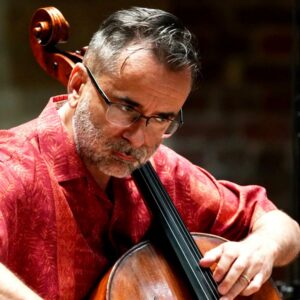
Ovidiu Marinescu
Ovidiu Marinescu is internationally recognized as a cellist, composer, conductor, and educator. He has performed at Carnegie Hall, Weill Hall, Merkin Hall (New York), the Great Hall of the Moscow Conservatory, Holywell Room in Oxford, Oriental Art Center in Shanghai, and has appeared as soloist with the London Symphony, New York Chamber Symphony, the National Radio Orchestra of Romania, Moscow Chamber Orchestra, Helena, Great Falls, Portsmouth, and Newark Symphonies, Southeastern Pennsylvania Symphony Orchestra, Cleveland Philharmonic, Limeira Symphony in Brazil, Orquesta de Extremadura in Spain, and most of the professional orchestras in his native Romania. The album LONDON CELLO CONNECTION features Marinescu and London Symphony Orchestra in eight newly-commissioned cello concertos by North American composers.
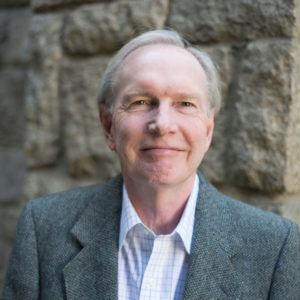
Bruce Babcock
Applauded by Aaron Copland, inspired by Desmond Tutu, and mentored by Hugo Friedhofer and Earle Hagen, Bruce Babcock has spent his working life composing music for the musicians of Los Angeles. Successful in both film and television, and the concert hall, he is known for vibrant, sonorous, expressive pieces that immerse audience and performers alike in an inclusive and exuberant celebration of the musical art.
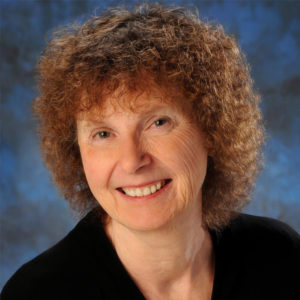
I’lana Cotton
I'lana Cotton is a composer, improviser, and pianist who has created works for a broad range of genres, from solo piano and small chamber groups to large choral and instrumental ensembles. Her concert music has been performed in the United States, the UK, Europe, and China.
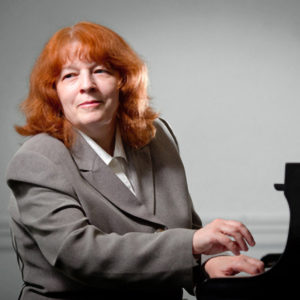
Alla Elana Cohen
Alla Elana Cohen is a distinguished composer, pianist, music theorist, and teacher who came to the United States in 1989 from Russia. Graduating from the Moscow State Tchaikovsky Conservatory with the highest honors of distinction, Cohen lives in Boston and is a professor at Berklee College of Music.
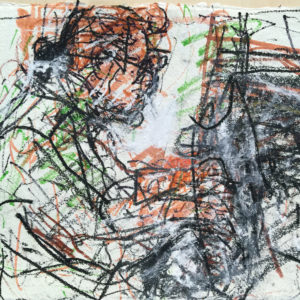
Curt Cacioppo
Curt Cacioppo's compositions synthesize and reflect multiple dimensions of his musical and humanistic experience. Like his mentor Leon Kirchner, and other composer/performers such as Frederic Rzewski and George Walker, he is a formidable pianist, fully grounded in the traditional solo, ensemble, and concerto literature, and avidly involved with new repertoire.
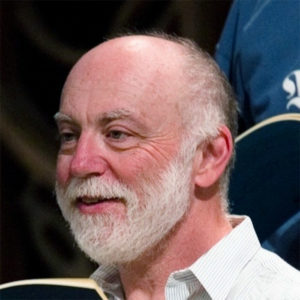
L Peter Deutsch
L Peter Deutsch is a native of Massachusetts, now living in Sonoma County CA, and British Columbia, Canada. He writes primarily for small instrumental or a capella vocal ensembles, spanning styles from devotional to romantic to jazzy, and from Renaissance to early 20th century. Works to date include four choral commissions; releases through PARMA Recordings include music for chorus, string quartet, woodwind and brass quintets, piano trio (featuring work with Trio Casals), and full orchestra.
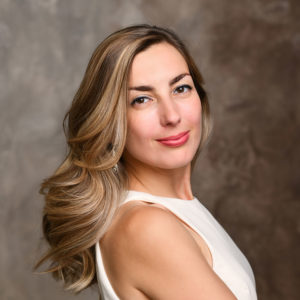
Anna Kislitsyna
Pianist and harpsichordist Anna Kislitsyna made her solo debut at age 10 with the Omsk Symphony Orchestra. She remains in high demand as a soloist, collaborative pianist, and educator. Recent season highlights include five new album productions with PARMA Recordings and two release concerts in Carnegie Hall’s Weill Recital Hall, performing Haydn and Shostakovich Piano Concertos with Helena Symphony and Southeastern Pennsylvania Symphony Orchestra, and returning to the Omsk Philharmonic as a soloist to give the inaugural performance on the new harpsichord.
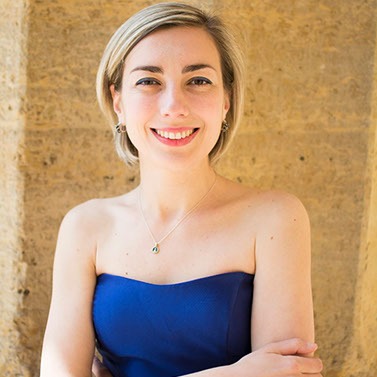
Anna Kislitsyna
Pianist and harpsichordist Anna Kislitsyna received her bachelor, master, and doctorate degrees in Piano Performance from Novosibirsk Conservatory. She was on the piano faculty at the Novosibirsk Conservatory and Novosibirsk Special Music School-College before moving to the United States in 2012. Kislitsyna completed her second master’s degree at West Chester University of Pennsylvania and her D.M.A. at Temple University.
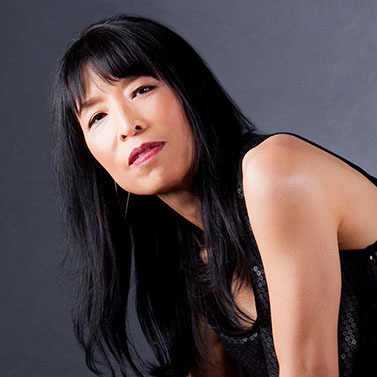
Gloria Cheng
“Cheng, a pianist who consistently fuses deep emotionality with exacting precision…” San Francisco Classical Voice
“Pianist Gloria Cheng is one of the most adventurous interpreters of contemporary music around, and in a spectacular recital…consisting almost entirely of works written in the 21st century—she showed just how surprising, eclectic and emotionally engaging the contemporary piano repertoire can be.” The Washington Post
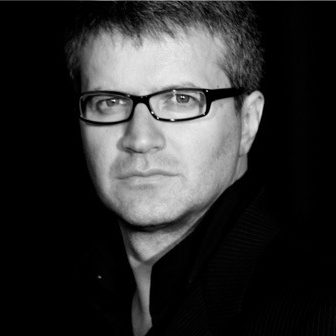
Francesco D’Orazio
In 2010, the Italian National Music Critics Association awarded Francesco D’Orazio the Premio Abbiati as “Best Soloist” of the year. He has recorded for Decca, Hyperion, Neos, Opus 111/Naive, Stradivarius, and Amadeus.
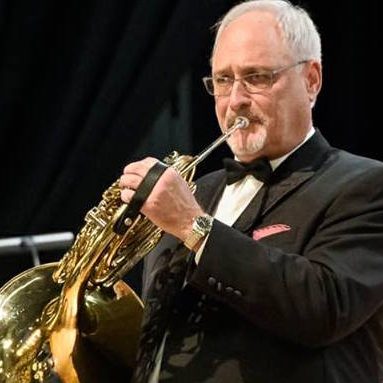
David Wetherill
David Wetherill, long-time first-horn player with the Philadelphia Orchestra, began his professional career as Principal Horn with the renowned opera house Teatro alla Scala in Milan, Italy, playing the greatest operas with the finest singers and conductors in the world.
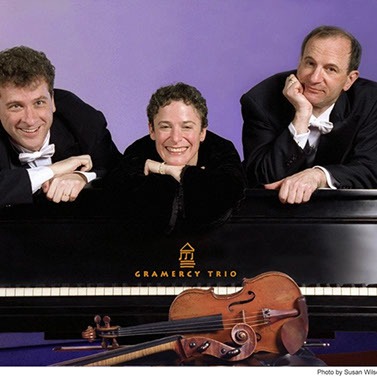
The Gramercy Trio
The Gramercy Trio, (Sharan Leventhal, violin; Jonathan Miller, cello; Randall Hodgkinson, piano) tours the country presenting concerts and residencies, with programs that include standard repertoire and new works. They have commissioned and premiered trios by composers such as Gunther Schuller, Scott Wheeler, Lee Hyla, Grawemeyer-award winning British composer Simon Bainbridge, tango artist Sonia Possetti, and acclaimed jazz pianist and composer, Fred Hersch.
